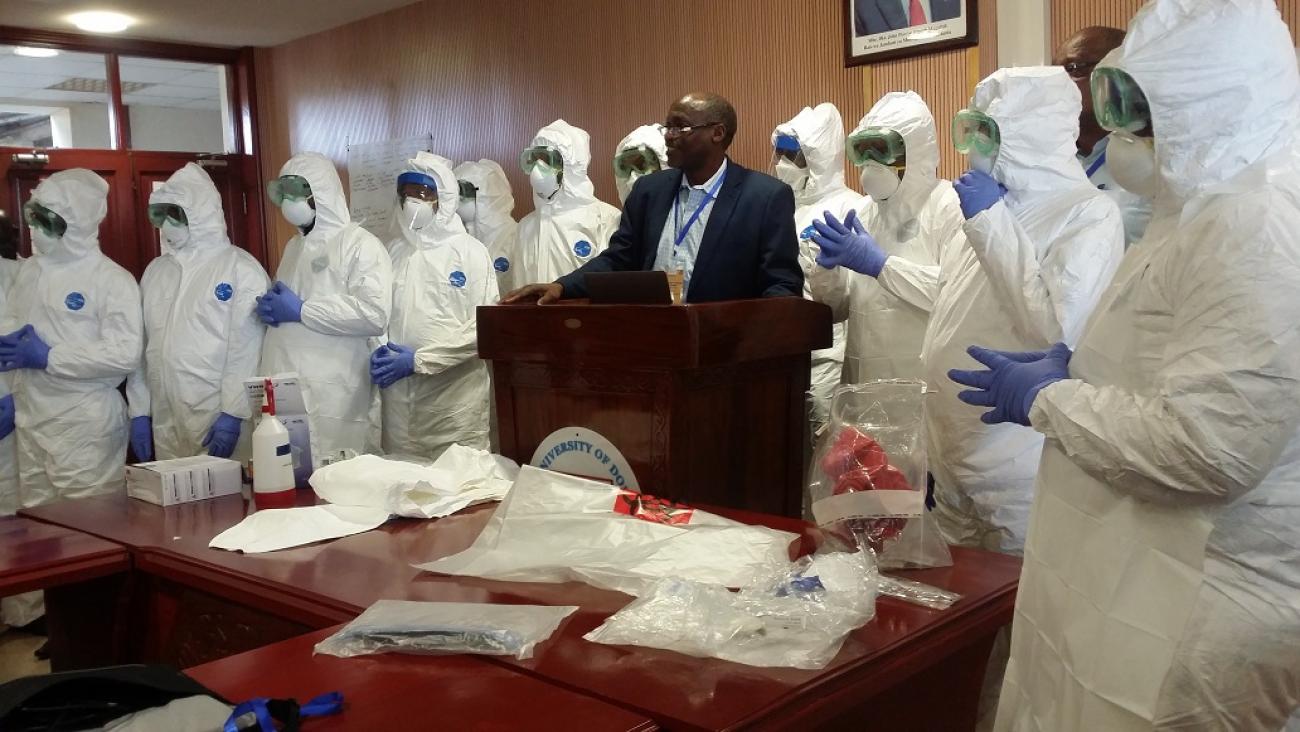A total of 55 front-line experts from selected high-risk districts in the country have been trained on COVID-19 and Ebola diseases prevention, rapid detection and sampling using the One Health Rapid Response Team approach.
The training was conducted in Dodoma last month (March) and was coordinated through the One Health (OH) Coordination Desk under the Prime Minister’s Office (PMO) and facilitated by the Food and Agriculture Organization of the United Nations (FAO) under the USAID-Funded Global Health Security Agenda (GHSA) project. This was in partnership with the World Organization for Animal Health (OIE) through its Veterinary Education Establishment Twinning Project by the Kansas State University (KSU) and Sokoine University of Agriculture (SUA).
The FAO’s Country Team Leader for the Emergency Centre for Transboundary Animal Disease (ECTAD) Programme, Mr. Fasina Folorunso, said that the training will help strengthen the multi-sectoral coordination mechanism at sub-national levels, and strengthen capacities to advance One Health and facilitate a coordinated approach for prevention, detection, and response to priority zoonotic diseases (PZDs) including COVID-19 and Ebola.
“In recent times, the health systems globally have been challenged by emerging and re-emerging infectious diseases like Ebola in West Africa and the Congo DRC, the ongoing COVID-19 pandemic and many other endemic zoonoses, among others.
Here in Tanzania we aimed to empower the human and animal health experts in the selected high-risk regions of Kagera, Kigoma, Katavi, Rukwa, Songwe and Dodoma in dealing these diseases,” he said.
According to him, effective prevention, detection and response to priority zoonotic diseases require a multi-sectoral coordination mechanism and response hence a need for the One Health approach. “This is in recognition of the roles played by different stakeholders in addressing prevention, detection, mitigation, preparedness and response to public health event and emergencies,” Fasina added.
The planning and implementation of the activity took cognizance of available experiences and resources within the Ministries of Health, Livestock, the World Health Organization (WHO), FAO, SUA and KSU as well as the ongoing global fight against the COVID-19 pandemic.



